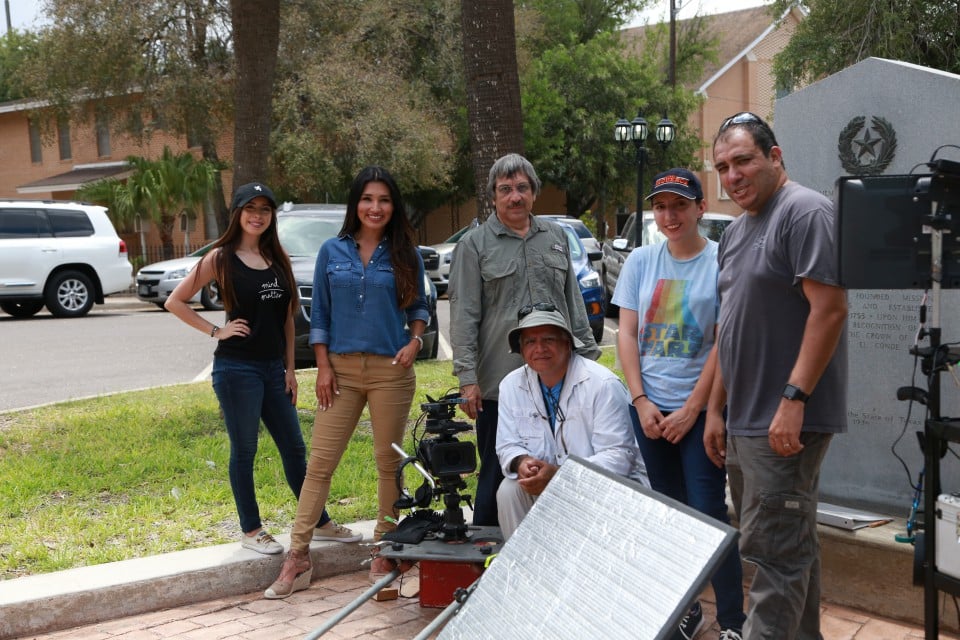By Amanda Alaniz
Rio Grande Valley, Texas – Many Rio Grande Valley residents know the history of Rio Grande City’s Fort Ringgold. But the number will grow vastly now, thanks to a documentary produced by The University of Texas Rio Grande Valley called “And Then The Soldiers Were Gone.”
The documentary has been nominated in the Fort Worth Indie Film Showcase under the Best Domestic Feature/Featurette Documentary category .
“And Then The Soldiers Were Gone” is about the military base at Fort Ringgold that was established before the Civil War to protect the people of South Texas. It served as a military base for many years, until the 1940s, when the fort closed and the soldiers left Rio Grande City.
The question that circulated within the city was what to do with the vacant base. Friction arose between those who wanted it to be a tuberculosis hospital and others who wanted it to be used as a center for education.
Eventually, in 1949, the Rio Grande City Consolidated School District bought Fort Ringgold and it served as a school for decades for all students to attend.
However, the divide between the people of Rio Grande City lingered.
Then, eight years ago, a project to research Fort Ringgold was created under then University of Texas Pan American’s Community Historical Archaeology Project with Schools (CHAPS) .
And two years ago, the idea for the documentary was born.
UTRGV CHAPS, along with Dr. Nick Taylor, lecturer II of Broadcast Journalism at UTRGV, and several students collaborated, gathering funding, conducting interviews, visiting the area and piecing together the documentary.
The project team included:
- Roseann Bacha-Garza - lead researcher, CHAPS program manager, UTRGV part-time lecturer.
- Mario Deleón – production lead, owner of Damaso Creative .
- Valerie Guerra – researcher, interviewer, UTRGV history student, Engaged Scholar.
- Dr. Christopher Miller - executive producer, CHAPS co-director, UTRGV history professor.
- Melissa Ochoa - assistant producer, writer, UTRGV alumna.
- Dr. Russell Skowronek - executive producer, CHAPS co-director, UTRGV professor of history and anthropology.
- Dr. Nick Taylor – producer, lead writer, camera op, co-editor, UTRGV lecturer II of Broadcast Journalism.
- Jamie Treviño - script research, first draft, UTRGV communications student and Engaged Scholar.
- Ivette Vargas – host.
Bacha-Garza said the production team was excited to learn about the festival entry, and Miller said being recognized by a panel of international film experts is telling.
“This project started out as an idea years ago. We didn’t know if anything was going to come out of it. We did everything we could to make something happen. And when you’re told, ‘Hey, you’re in the big leagues.’ It’s – wow,” Miller said.
Taylor said they had shown the documentary at FESTIBA , UTRGV’s annual celebration of arts and letters, in 2018, and received an outstanding reaction. Still, he said, he had his concerns about taking it to an audience that didn’t have a connection with the film.
“I kept saying, ‘What are we going to do when we show this to somebody who knows nothing about Rio Grande City? Are they going to appreciate it?’ So, when we were accepted into this film festival, it really validated that the work we were doing mattered and was worthwhile,” he said.
Skowronek agreed that the feedback has been overwhelmingly positive, and said they are thankful to the residents of Rio Grande City for telling “their story.”
“People told us, ‘That’s our story. You told our story.’ One of the people who participated had passed away before we got it out, but his sister came to the showing and was so tickled to see her brother in it,” he said.
CHAPS currently is working with a non-profit organization called Revive Fort Ringgold, whose mission is to keep the fort from crumbling through neglect. And, as Bacha-Garza explained, that is exactly what CHAPS is about – historic preservation.
“All the projects we do have to do with keeping alive the heritage and history of the region,” she said.
The film festival is scheduled to take place July 19-22 at the Historic Sundance Square at the Norris Conference Centers - Fort Worth . The documentary will be shown on Saturday.
To learn about CHAPS and future projects visit www.utrgv.edu/chaps or contact Roseann Bacha-Garza at roseann.bachagarza@utrgv.edu .
ABOUT UTRGV
The University of Texas Rio Grande Valley (UTRGV) was created by the Texas Legislature in 2013 as the first major public university of the 21st century in Texas. This transformative initiative provided the opportunity to expand educational opportunities in the Rio Grande Valley, including a new School of Medicine and a School of Podiatry, and made it possible for residents of the region to benefit from the Permanent University Fund – a public endowment contributing support to the University of Texas System and other institutions.
UTRGV has campuses and off-campus research and teaching sites throughout the Rio Grande Valley including Brownsville (formerly The University of Texas at Brownsville campus), Edinburg (formerly The University of Texas-Pan American campus), Harlingen, Weslaco, McAllen, Port Isabel, Rio Grande City and South Padre Island. UTRGV, a comprehensive academic institution, enrolled its first class in the fall of 2015; the School of Medicine welcomed its first class in the summer of 2016, and the School of Podiatric Medicine in the fall of 2022.

